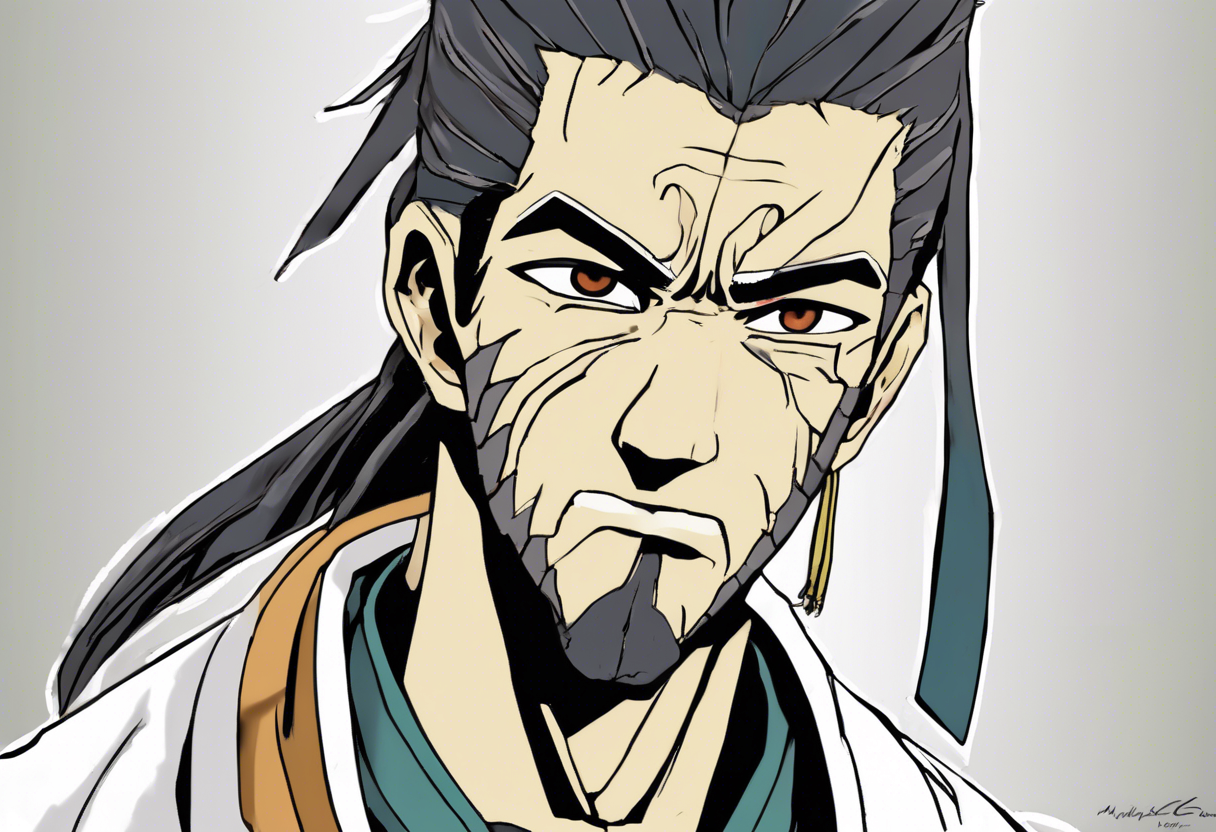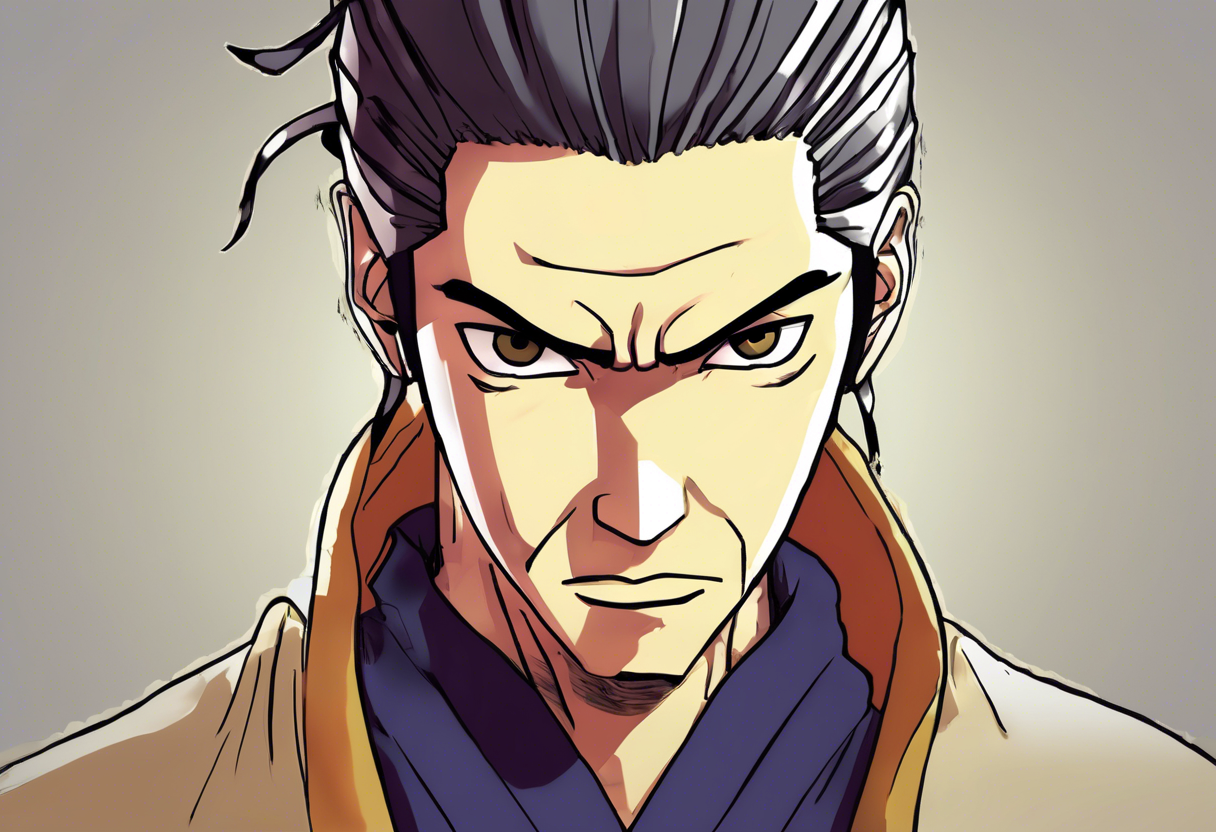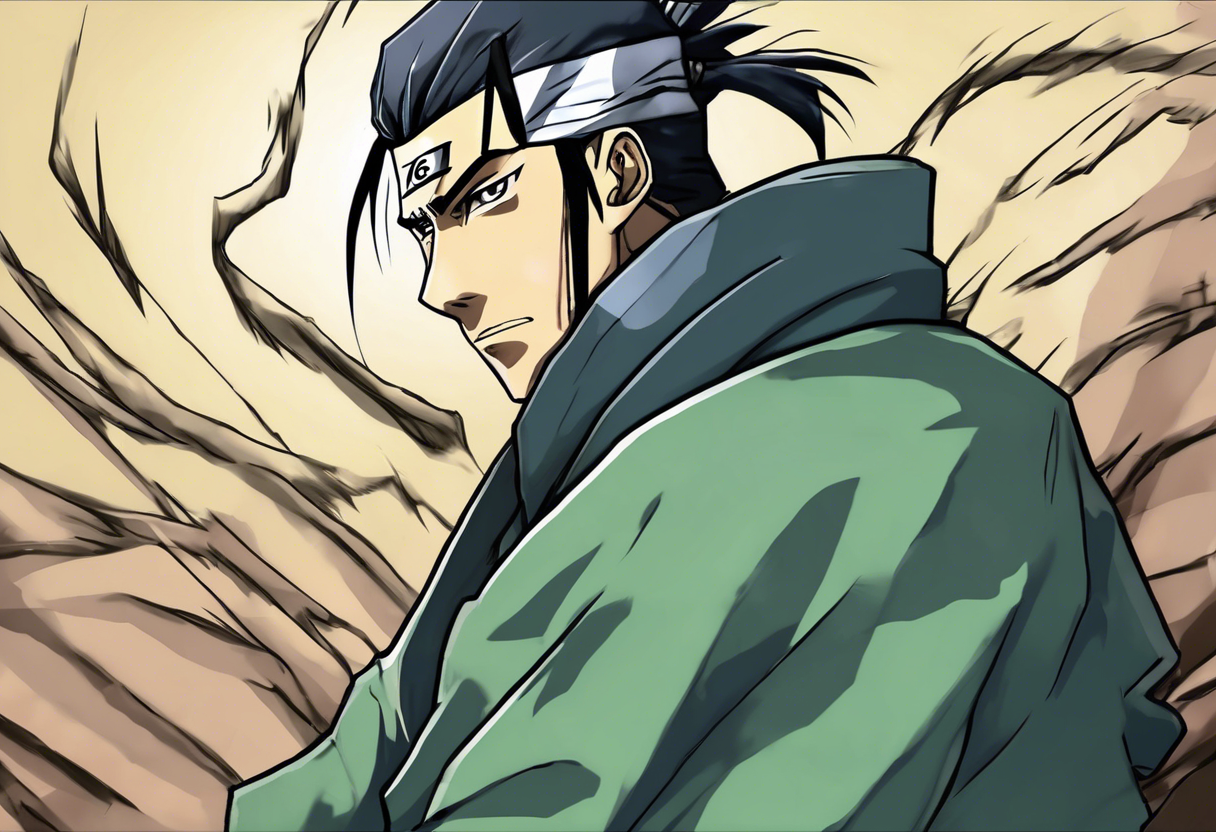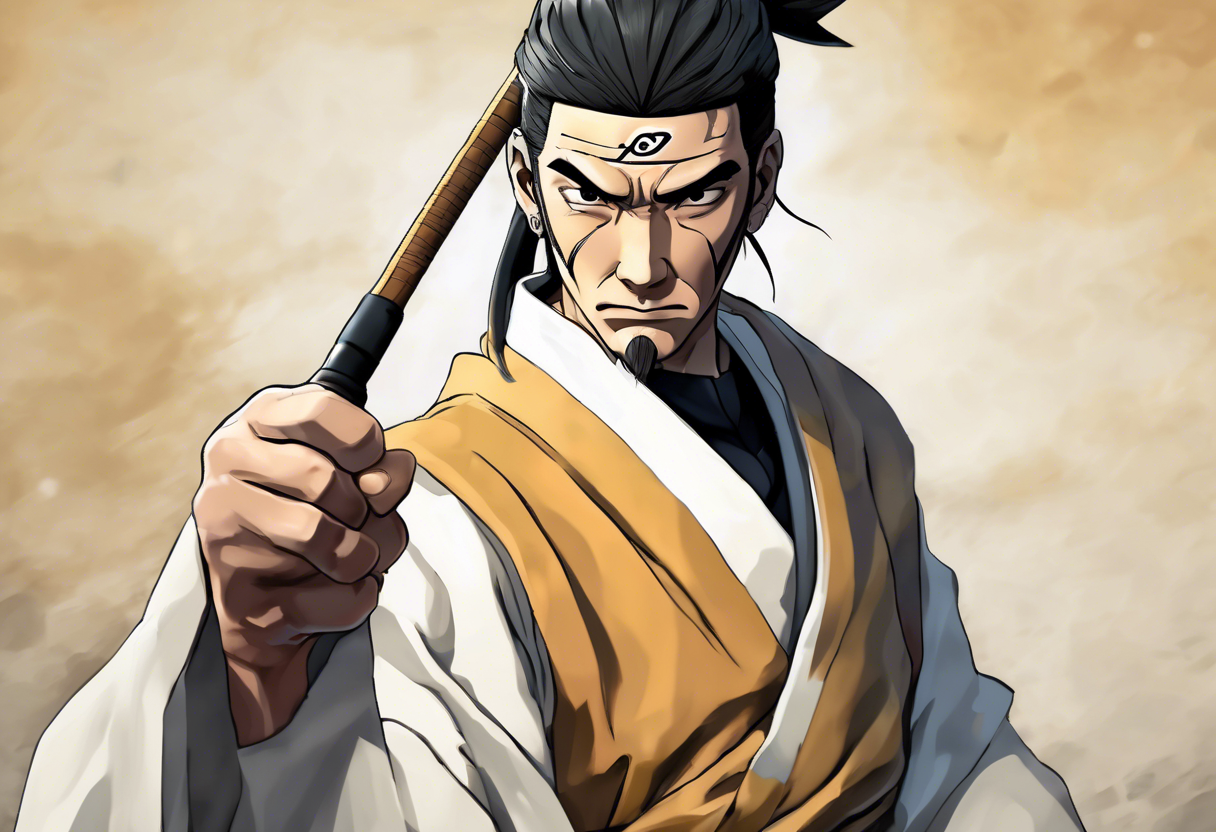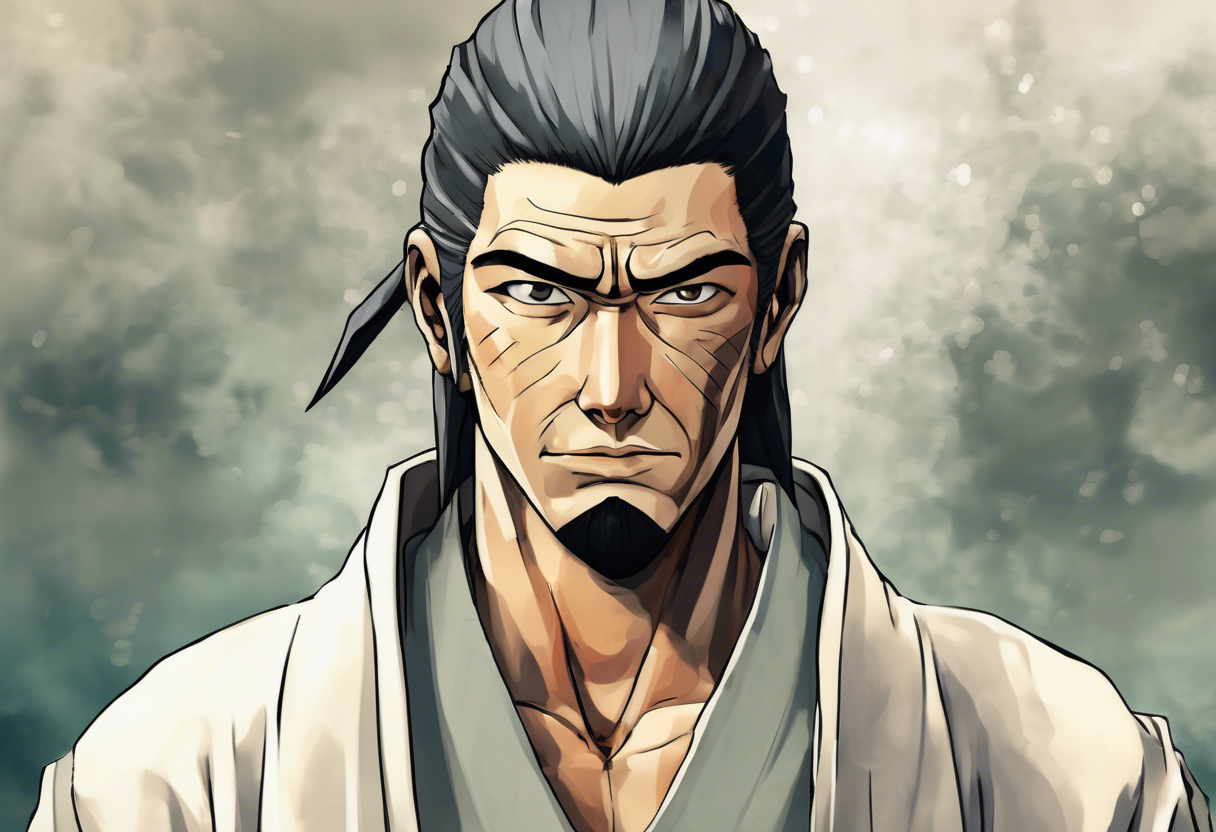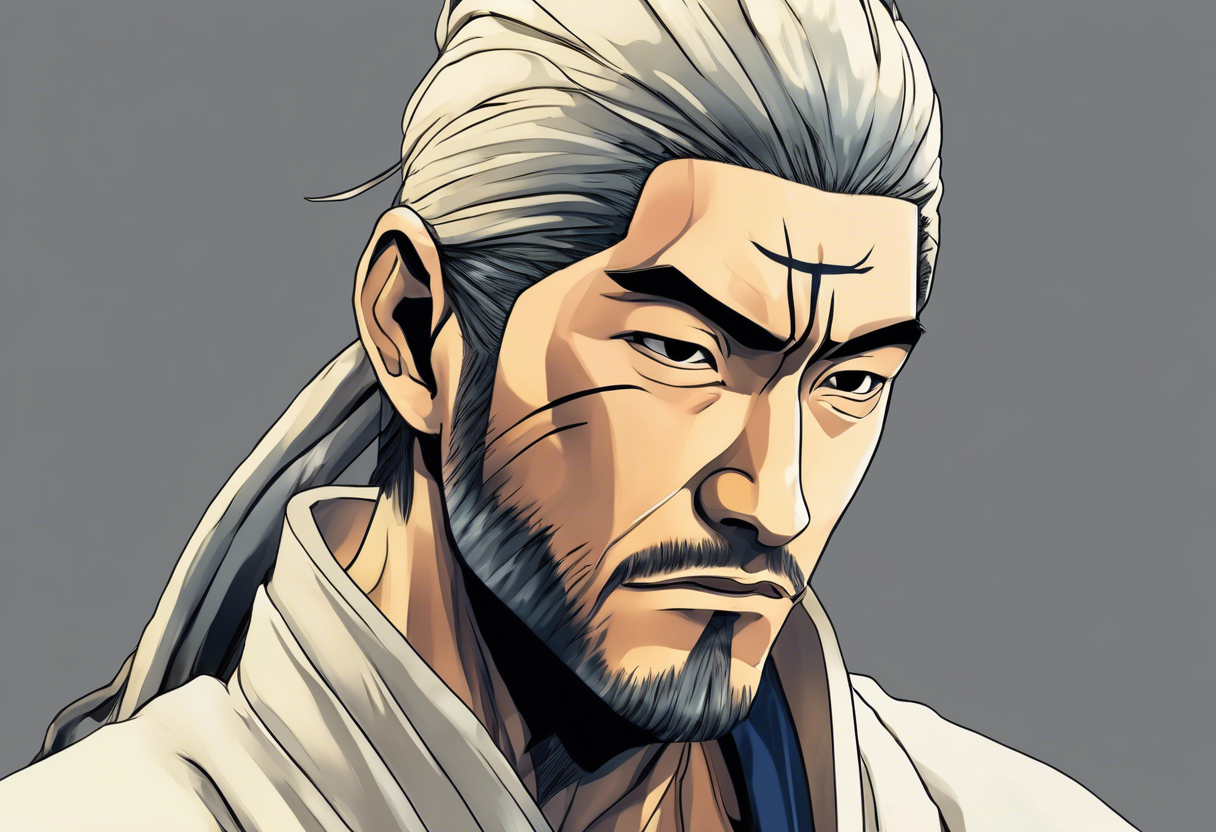Contents
Mifune: The Samurai of the Naruto Universe
Introduction
Mifune, a pivotal character in the Naruto series created by Masashi Kishimoto, is a skilled samurai from the Land of Iron. Despite his limited screen time, Mifune’s presence is significant, reflecting the broader themes of honor, discipline, and the intersection of samurai and ninja traditions. His character was introduced to highlight the diversity and richness of the Naruto world, which is not limited to ninjas but also encompasses other warrior cultures.
Mifune’s creation and backstory are deeply rooted in the historical and cultural context of Japan, particularly the samurai era. His character embodies the traditional values of samurai, such as honor, loyalty, and mastery of kenjutsu (the art of Japanese sword fighting). Mifune’s role in the narrative serves as a bridge between the samurai and ninja worlds, showcasing the strengths and philosophies of both.
Role in the Story
Mifune’s storyline is intertwined with significant events in the Naruto series, particularly during the Fourth Great Ninja War. He is introduced as the leader of the samurai from the Land of Iron, who ally with the shinobi forces to fight against the Ten-Tails’ jinchuriki, Obito Uchiha, and later against Kaguya Otsutsuki.
One of Mifune’s most notable appearances is his battle against Hanzo, a powerful ninja from the Hidden Rain Village. In their first encounter, Mifune was defeated by Hanzo’s poison, but he later avenged this defeat during the Fourth Great Ninja War when Hanzo was reanimated. This victory showcased Mifune’s significant growth and skill, as he was able to counter Hanzo’s poison with his swift and precise sword techniques[3][2].
Mifune’s relationships with other characters are also noteworthy. He is respected by his peers and allies for his leadership and combat prowess. His interactions with the main characters, although limited, highlight his commitment to honor and his adherence to the samurai code.
Character Analysis
Mifune’s personality is defined by his unwavering commitment to honor, discipline, and the traditional values of the samurai. He is depicted as a stoic and highly skilled warrior who excels in kenjutsu, making him nearly unbeatable in close combat. His speed and agility are so exceptional that he can interrupt ninjas from performing hand seals, a crucial aspect of their jutsu (ninja techniques)[2][1].
Mifune’s motivations are rooted in his duty to protect his people and uphold the honor of the samurai. He is driven by a strong sense of loyalty and responsibility, which guides his actions throughout the series. His character development, though not extensively explored, shows a consistent adherence to his principles and a continuous improvement in his skills.
One of Mifune’s significant strengths is his ability to excel in a world dominated by ninjas. His kenjutsu skills are so powerful that they render many ninja jutsu ineffective against him. However, his reliance on physical combat also makes him vulnerable to opponents who can maintain a safe distance or use continuous, non-seal-based jutsu[1][2].
Themes and Symbolism
Mifune embodies several key themes in the Naruto series, including the importance of honor, discipline, and the value of traditional skills in a modern world. His character symbolizes the enduring legacy of the samurai, highlighting their contributions to the broader warrior culture of the Naruto universe.
The contrast between Mifune’s samurai traditions and the ninja world serves to enrich the narrative, adding depth and diversity to the story. His interactions with ninjas underscore the differences and similarities between these two warrior cultures, promoting a theme of mutual respect and cooperation.
Mifune’s role also touches on the theme of legacy and the passing of traditions. Through his disciple, Tsubaki Kurogane, who appears in the sequel series Boruto: Naruto Next Generation, Mifune’s philosophy of discipline, honor, and swordsmanship continues to influence the next generation of warriors[3].
Cultural Impact
Mifune’s cultural significance extends beyond his role in the Naruto series. He represents a bridge between the historical samurai era and the modern ninja world, making him a fascinating character for fans interested in Japanese history and culture.
In adaptations and spin-offs, Mifune’s character has been received positively by fans who appreciate his unique blend of traditional samurai values and modern ninja storytelling. His influence can be seen in how the series Boruto: Naruto Next Generation has integrated samurai traditions more deeply into the narrative through characters like Tsubaki Kurogane[3].
Mifune’s impact on popular culture is evident in the way he has inspired fan discussions and analyses. His character has been a subject of debate among fans regarding his strength and abilities, particularly in comparison to other powerful characters in the series[1][2].
Critical Reception
Critics and audiences have generally praised Mifune for his unique contribution to the Naruto series. His character is often cited as one of the most underrated yet powerful warriors in the anime, with many fans appreciating his speed, skill, and adherence to traditional values.
However, some critics have noted that Mifune’s limited screen time and lack of detailed backstory are drawbacks that prevent a fuller exploration of his character. Despite this, his influence on the narrative and his legacy through characters like Tsubaki have been well-received[3].
Legacy
Mifune’s enduring appeal lies in his representation of the samurai tradition and his integration into the broader Naruto universe. His character continues to inspire discussions about the intersection of different warrior cultures and the importance of honor and discipline.
In contemporary discussions, Mifune’s legacy is seen through characters like Tsubaki, who carry forward his teachings and values. This ensures that the samurai tradition remains relevant in the evolving shinobi society depicted in the series[3].
Mifune’s influence can also be seen in other works that blend traditional martial arts with modern storytelling elements. His character archetype serves as a model for strong, honorable, and skilled warriors who uphold traditional values in a changing world.
References
- https://www.fanverse.org/threads/how-strong-is-mifune.1107400/
- https://www.fanverse.org/threads/mifune-leader-of-the-samurais-and-kage-level-ninja.751209/
- https://screenrant.com/naruto-anime-wasted-opportunity-samurai-country-op-ed/
- https://ejournal.unitomo.ac.id/index.php/eckll/article/download/5473/2701/
- https://en.wikipedia.org/wiki/Gaara

